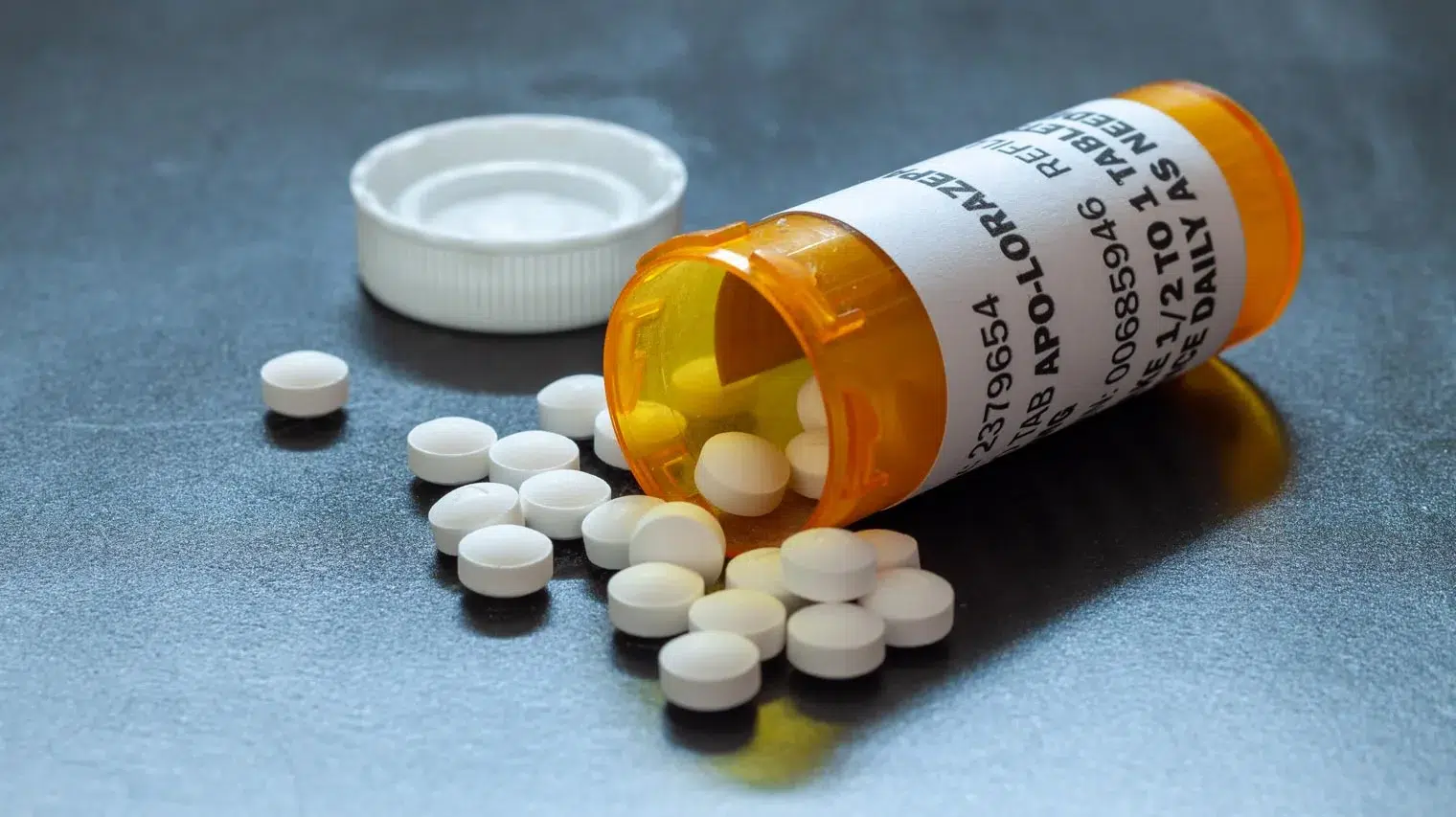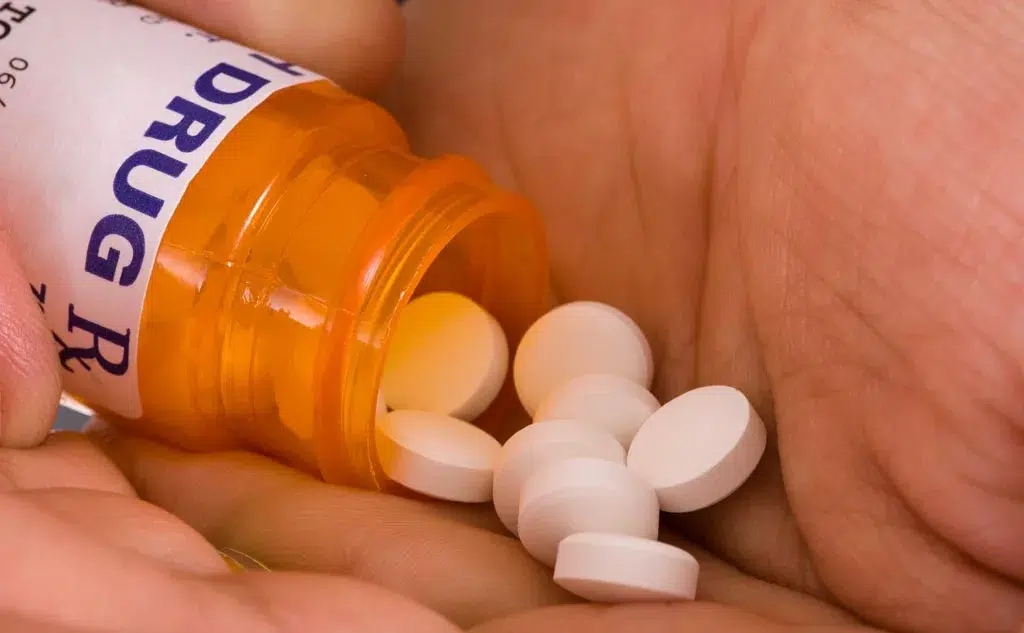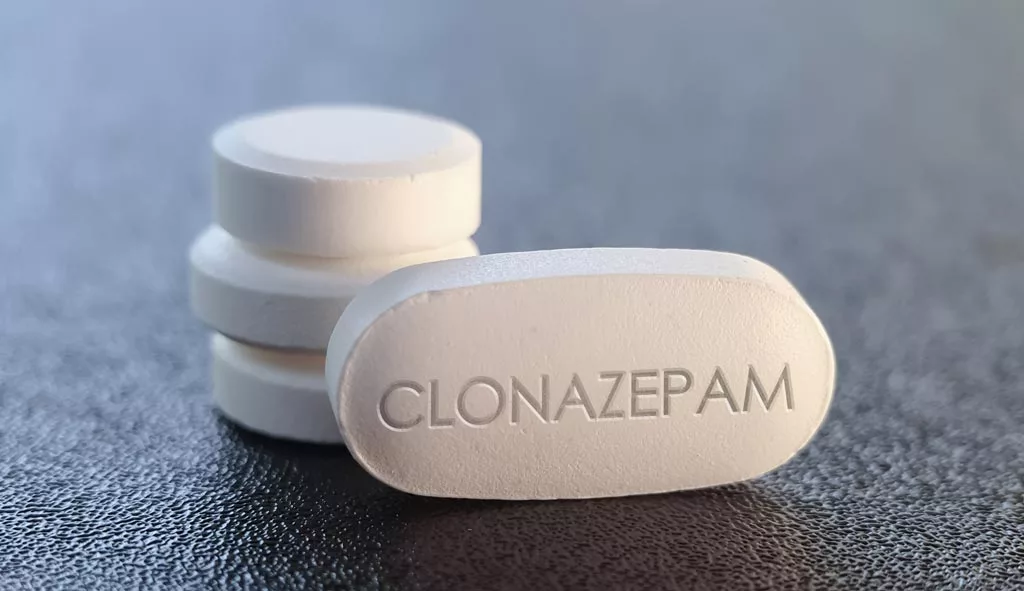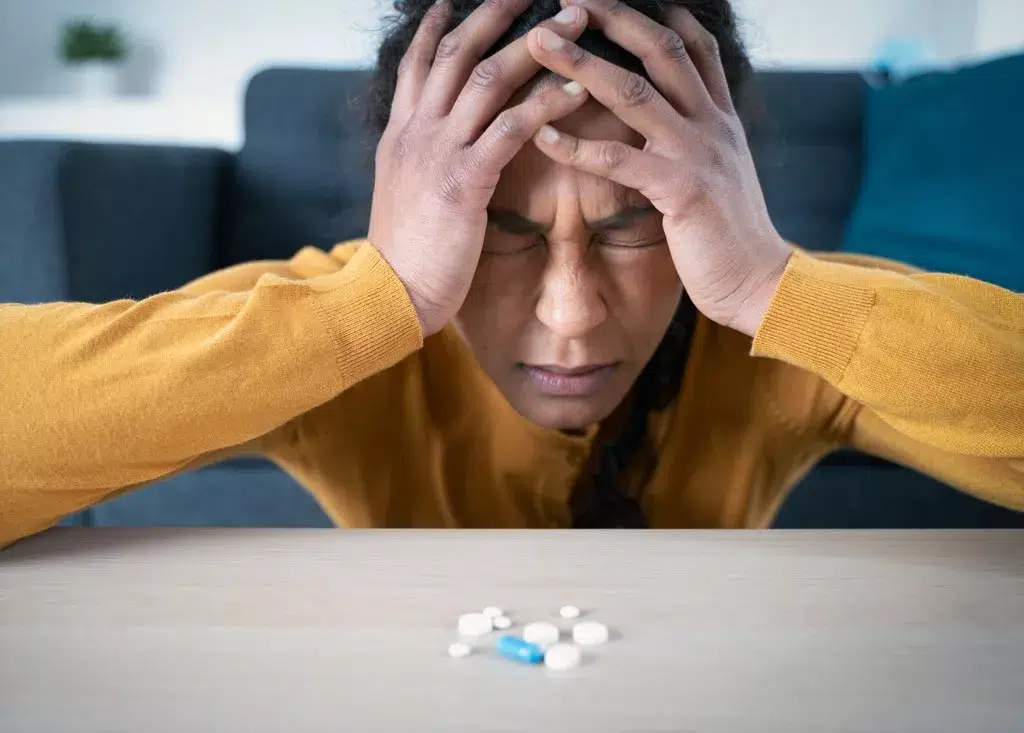What are Benzodiazepines?
Table of Contents
Benzodiazepines are sedative hypnotic depressants which are only legally available through a prescription. These are commonly prescribed in the U.S. to help treat generalized anxiety disorder, panic disorders, insomnia, and other mood disorders.
In addition to treating these conditions, benzodiazepine use may also occur in monitored medical settings to treat cerebral palsy, ease severe muscle spasms, reduce certain withdrawal symptoms, and decrease stress and anxiety in patients anticipating invasive surgeries.
However, even with these medical uses, according to the Drug Enforcement Administration, benzodiazepines are also highly controlled Schedule IV substances. This is because they are very addictive, and can cause users to develop a physical dependence to them over time.
Immediate Placement in Benzodiazepine Rehab
How Can Benzodiazepines Help Treat Anxiety Disorders?
Benzodiazepines work by directly affecting the central nervous system, through stimulating the Gamma-aminobutyric acid (GABA) neurotransmitter — a chemical in the brain that produces feelings of calmness and sedation.
This is what makes benzodiazepine use so effective in treating anxiety disorders. This interaction can also cause drowsiness, making it easier for individuals with sleep disorders, such as insomnia, to fall and stay asleep more easily.
The effects of benzodiazepines have also been found to be helpful in treating other mental health conditions, such as panic disorders. However, its sedating and calming influence has also made it an appealing drug for those without medical need for it to abuse.
Using a benzodiazepine in higher doses or for longer than advised or needed will eventually build up a tolerance to this drug. Over time, this increased usage will lead to a person’s development of a physical and psychological dependence on this drug.
The Different Forms and Methods of Using Benzodiazepines
There are two main types of benzodiazepines that may be prescribed for treating individuals who are struggling with certain mental or mood disorders. These include short-acting, and longer-acting benzodiazepines.
Short-acting benzos are more commonly used for treating insomnia, as these have a brief half-life and will exit the body more quickly than long-acting benzos. This means they will also wear off faster, making them a less effective remedy for daytime anxiety or other mood effects.
Long-acting benzos have, as suggested by the name, longer half-lives. This means they are a more effective way to treat someone with an anxiety disorder, as they take longer to leave a person’s system, providing a calming effect throughout the majority of a person’s day.
There are also illicitly-produced benzodiazepines, which work similarly to pharmaceutical benzos, decreasing the activity of the brain’s nerve impulses and slowing down functionality within this organ.
Illicit benzos are generally more dangerous than prescriptions because they are often laced with or used in conjunction with other commonly abused drugs, such as synthetic opioids; drugs that are extremely powerful, addictive, and dangerous when misused.
When it comes to the methods of benzodiazepine use, there are several ways in which an individual may administer this drug. In medical settings, most benzodiazepines are taken orally in a pill or capsule form. Valium is one exception that may be administered intravenously.
On the other hand, illegally-manufactured benzodiazepines, or the misuse of prescribed benzos, may be carried out through various other methods of administration; these, of which, may be far more dangerous and habit-forming in nature.
The Most Common Method of Benzodiazepine Abuse
For those who are abusing benzodiazepines, these individuals most commonly do this by orally taking higher doses, or crushing benzo pills and snorting the powder that is produced. This can cause a faster and more intense high; however, it also greatly raises a person’s overdose risk.
Some individuals may also use powdered or liquid forms of this drug by dissolving it into a liquid base and drinking or injecting it. While this method is less common with benzo abuse, it may be more prevalent amongst users who are mixing this drug with other substances, such as alcohol.
24 Hour Benzo Rehab Hotline
Understanding Benzodiazepine Addiction
It is important to remember that, with any substance addiction, it is rarely ever the case that an addicted individual becomes hooked with the intention of doing so. Rather, many people turn to substance abuse as a coping mechanism for the daily stress and emotional burdens of life.
According to the Substance Abuse and Mental Health Services Administration, it is quite common for those struggling with a substance use disorder to be simultaneously struggling with a mental health disorder, as well.
Referred to as co-occurring disorders, or dual diagnosis, individuals with these conditions typically form a physical dependence on a substance after using it to self-medicate. Of course, there is no guarantee a high produced by these substances will help ease difficult emotions.
Even in the rare case that their substance abuse works as intended, this relief is only a temporary solution and, unfortunately, one that may only worsen and lead to the development of additional mental issues in the long term (amongst other negative consequences).
When it comes to benzo addiction, those struggling with this condition likely began taking this drug to help manage a specific mental health disorder. Unfortunately, the effectiveness of the benzodiazepines may have caused them to begin using outside of their prescription guidelines.
Furthermore, many people have ended up developing a benzodiazepine dependence without even realizing it. In these cases, they were unaware of their addiction until they stopped using benzodiazepine, and subsequently began experiencing withdrawal symptoms.
Because of how easy it is to develop an addiction to this substance, it is strongly recommended to always use benzos exactly as prescribed. Even if an individual feels their prescribed benzo is not helping, taking larger doses or using more frequently than guided poses a risk for addiction.
Furthermore, for those with a personal or family history of substance abuse, it may be helpful to look into other medications that are less habit-forming. While this history does not guarantee they will form an addiction, it is certainly better to avoid the possibility entirely.
Rising Rate of Prescription Drug Addiction in the U.S.
Prescription drug abuse is becoming an increasingly prevalent issue within the United States, as reflected by the increasing severity of the opioid epidemic currently wracking the nation. Unfortunately, benzodiazepines have become a key player in these cases of substance abuse.
According to a 2020 survey conducted by the National Institute on Drug Abuse, around 16.1 million people ages 12 and over reported misusing prescription drugs that year. Of these individuals, 4.8 million reported having misused their prescribed benzodiazepines.
These cases have only become more concerning over the years, as benzos are beginning to be more commonly combined with other drugs; in particular, opioids. These are particularly dangerous drugs, serving as the leading contributor to overdose deaths across the nation.
When combined, benzos and opioids can quickly become lethal. These drugs both act as sedatives and, when taken together, may suppress a person’s breathing. A prolonged lack of oxygen can lead to significant and potentially irreversible cognitive impairment, and even death.
It is rare that an individual will ever be given both an opioid and a benzodiazepine as simultaneous prescription medications. In the event that they are, the doses and duration for which they will be taken will likely be highly regulated, and only for a short period of time.
What are the Most Commonly Abused Benzodiazepines?
Whether short or long-acting, there are over a dozen benzodiazepines available through prescription today. Despite their potential for addiction, they are still widely medically used. Some of the most commonly prescribed (and commonly abused) benzodiazepines include:
- Diazepam (Valium)
- Alprazolam (Xanax)
- Clonazepam (Klonopin)
- Lexotan
- Rohypnol
- Ativan
- Librium
Generally, due to their addictive qualities and potential for abuse, doctors suggest using benzodiazepines for less than four weeks at a time, even if there is a continuing medical need for them. Some benzos may be prescribed for even shorter periods of time than this.
Furthermore, in addition to the many available benzodiazepine prescriptions, there are also thousands of illicit versions available. These may each serve a different purpose, come with varying side effects, cost more or less than another, and present different degrees of risk.
Another large risk factor both for addiction and experiencing unpleasant side effects from drug misuse is the mixing of benzodiazepines with other substances, such as opioids and alcohol. These combinations can cause severe physical or psychological damage, overdose, and death.
Prescription Drug Medical Help – Call 24/7
Recognizing the Signs of Benzodiazepine Abuse
Recognizing that you or a loved one may be struggling with addiction can be an incredibly difficult thing to do; but it is necessary. After all, accepting that there is a problem is the first and most important step to being able to do something about it.
As presented by the American Psychiatric Association, the Diagnostic and Statistical Manual of Mental Disorders (DSM-5) lists several signs that may serve as an indication that someone is struggling with a benzodiazepine addiction, including:
- Being repeatedly unsuccessful when attempting to cut down on or completely stop using benzodiazepines.
- Continuing to use benzodiazepines despite this causing or worsening other mental or physical health conditions.
- Regularly taking benzodiazepines in higher doses or for longer periods of time than originally intended, or otherwise not being able to control benzo usage.
- Recurring inability to perform major work, school, or home responsibilities due to benzodiazepine use.
- Using benzodiazepines in situations that may be hazardous to oneself or the people around you, such as driving, operating heavy machinery, or otherwise.
- Continuing benzodiazepine use despite this potentially causing persistent problems with friends, family members, or other personal relationships.
- Developing a tolerance to benzodiazepines, often manifested through needing to use more often or in increasingly high doses in order to achieve a desired effect.
- Developing benzodiazepine withdrawal syndrome when attempting to reduce or stop use of this drug.
- Spending large amounts of time and money obtaining, using, or recovering from the effects of benzo use.
- No longer participating in previously enjoyable or important occupational, social or recreational activities due to benzo use.
- Experiencing strong drug cravings, or an intense need to use, when not actively taking benzos.
Side Effects of Benzodiazepine Misuse and Abuse
Whether abusing shorter or longer-acting benzos, there are several unpleasant side effects that may occur when misusing this drug. These symptoms can become even more pronounced and dangerous when using benzos with other substances.
Generally, short-term benzo abuse can result in side effects such as:
- Grogginess or drowsiness
- Insomnia
- Poor coordination and balance
- Dizziness
- Increased risk of a fall or accident
- Impaired memory or confusion
- Trembling
- Vision problems
- Depressive episodes
Long-term abuse, such as that which occurs with a full-blown benzo addiction, may lead to more serious side effects, including heart attacks, strokes, psychosis and seizures. Chronic benzo abuse can also increase a person’s risk of serious or fatal overdoses.
When mixed with alcohol or other similar substances, overdose is even more likely, as well as additional side effects such as dementia, kidney damage, and liver damage.
Is it Possible to Overdose on Benzodiazepines?
As with most other substances, there is such a thing as taking too much of a benzodiazepine. This is particularly common amongst suicidal individuals who have been prescribed this medication, and elderly patients with diminished metabolic rates.
While death resulting from a benzodiazepine overdose on its own is rare, it is possible in cases where individuals with respiratory depression did not receive the right medical help. Furthermore, fatal overdose becomes more likely when mixing benzos with other substances.
Within the year of 2020 alone, an estimated 16% of overdose deaths resulting from opioids also involved benzodiazepines. This combination is particularly popular due to each substances’ ability to enhance the sedative effects of the other.
Unfortunately, this can easily cause the body to become too sedated, potentially ceasing to function altogether. This is particularly common in individuals unknowingly using opioids laced with benzos, as they have no way of measuring the amount of each drug they are taking.
Immediate Help For Benzodiazepine Addiction
Signs of Benzodiazepine Overdose
Someone who has taken too high a dose of a benzodiazepine may be at a significant risk of experiencing dangerous side effects, including death. Thus, knowing how to recognize the signs of a benzo overdose can be life-saving.
Some of the most common overdose symptoms associated with benzodiazepines include extreme sedation and unresponsiveness, diminished vital signs, and anterograde amnesia. Larger doses can result in coma and respiratory depression.
If you or a loved one is experiencing any of these symptoms, it is crucial that you immediately emergency medical assistance in order to prevent these from getting any worse, or causing irreversible damage.
Treatment Options for a Benzodiazepine Addiction
Overcoming a substance addiction alone is often extremely difficult, and can even feel impossible. Various factors may further complicate this process, such as simultaneous abuse of other substances, negative social and environmental factors, and co-occurring disorders.
It is for these reasons, as well as the intense withdrawal period of this drug, that it is strongly encouraged to seek out a professional treatment provider when attempting to overcome a benzodiazepine addiction.
For a drug with such highly addictive qualities and serious potential for abuse, various addiction treatment services may be beneficial. Inpatient care is one of the most widely recommended options. This method of care often begins with a medically-assisted and supervised detox.
Once these levels of care have been completed, individuals will likely be encouraged to seek out further treatment at outpatient treatment centers. These can help individuals find long-term recovery support and build better independent sober-living skills.
Medical Detox
Going through the withdrawal process alone can be scary, uncomfortable or painful, and even dangerous in some cases. This is why, for many people, a medically supervised detox program is a critical part of their addiction treatment process.
This is particularly true for those experiencing benzodiazepine, opioid, or alcohol withdrawal symptoms, as these are the most likely to become lethal without professional support.
Furthermore, when combining benzos with other substances, particularly opioids or alcohol, withdrawal symptoms associated with each of these can be increased and further exacerbated.
These programs can help manage symptoms of withdrawal through gradually tapering individuals off of an abused substance in a controlled clinical environment. This process may also include the administration of addiction medicines to help prevent drug cravings.
Undergoing a supervised benzodiazepine detox process during drug rehab drastically increases a person’s chances of a successful recovery through eliminating relapse temptations and easing withdrawal symptoms.
Benzodiazepine Withdrawal Symptoms
There are several benzodiazepine withdrawal symptoms that may occur when attempting to quit using this drug, the most common of which are called “rebound” symptoms. These can vary depending on a person’s type, method, amount, and frequency of benzo use.
For example, short-acting benzos will typically produce withdrawal symptoms faster than those that are long-acting, due to their shorter half-lives. Generally, however, these effects will develop within one to four days of someone’s last benzo dose, and may last for up to ten days.
Commonly experienced benzo withdrawal symptoms include:
- Sleep disturbances
- Increased tension
- Anxiety
- Panic attacks
- Poor concentration
- Excessive sweating
- Heart palpitations
- Headache
- Stiff muscles or muscular discomfort
- Mild to moderate visual changes
- Drug cravings
- Hand tremors
While less common, more severe and potentially lethal symptoms of withdrawal may occur as well, including hallucinations, seizures, psychosis, and increased suicidal ideations. This is why it is crucial to seek out professional addiction treatment rather than attempt to detox alone.
Inpatient Treatment
Once a recovering individual has completed an initial detox program, they will likely move onto the next step in their treatment process. For many, this will entail their participation in inpatient rehab programs.
This level of care will require individuals to live at a treatment facility throughout the duration of their recovery process. During this time, they will likely participate in a number of behavioral, mental health, and addiction treatment services, including:
- Clinical evaluations and support services.
- Medication-assisted treatment.
- Individual, group, and family therapy sessions.
- Cognitive behavioral therapy (CBT).
- Nutritional counseling.
- Vocial, social, and relapse prevention skill training programs.
- Recreational activities, such as yoga, swimming, or guided meditation sessions.
When recovering at an inpatient treatment center, individuals will have access to more intensive, round-the-clock recovery support and resources. They will also be able to focus solely on their treatment process, free from any outside distractions, temptations, or responsibilities.
Free Insurance Verification for Benzodiazepine Rehab
Outpatient Treatment
Outpatient treatment programs are a more flexible and less intensive level of addiction care. These include standard and intensive outpatient programs, as well as partial hospitalization programs.
Individuals often choose to pursue further recovery support at an outpatient treatment facility after first completing more intensive programs. However, there are also those with unavoidable time or financial constraints who use this level of care as a stand-alone treatment option.
Outpatient treatment will usually involve participating in peer support groups and relapse prevention programs. These can help individuals build important social skills, as well as healthy coping mechanisms that can further support independent sober-living.
This may also include a person’s involvement in recovery support groups such as Alcoholics Anonymous (AA), Narcotics Anonymous (NA), or non-12 step alternative recovery programs.
Does Insurance Cover Substance Abuse Treatment?
Many people find themselves worried about how much it will cost to receive professional addiction treatment. Fortunately, most health insurance providers will cover a portion or even all of a person’s substance abuse treatment process.
Many addiction treatment centers, such as the Emerald Isle treatment facility, will accept most major insurance providers, including Medicare, Aetna, AmeriHealth, BlueCross/BlueShield, and Cigna.
If you do not see your provider on this list, please call our addiction specialists for a fast, easy, and free insurance verification. If your coverage falls short or you don’t have insurance, our treatment center offers payment options that can work with your financial situation.
The well-being and sobriety of each of our clients comes first; payments and all other details are secondary.
Emerald Isle: A Great Place to Recover From Addiction
With guidance and care, benzodiazepine addiction is beatable. At Emerald Isle, we pride ourselves on providing a warm, compassionate, and dedicated environment that is capable of meeting all of your personal care needs.
The experts at Emerald Isle are here for you from the first phone call, to continuous support after you have successfully recovered from whatever addiction you may be struggling with. We not only treat your addiction, but help you discover and treat the root of these habits, as well.
So call today, and let us remove the obstacles and boundaries that are standing between you and your recovery with a wide range of proven, creative, and holistic treatment methods. At Emerald Isle, we struggle together, we heal together, and we succeed together.




